The good
Easier home recycling means more people do it. Putting all items into the same bin and truck is cost-effective, saving cities time and money.

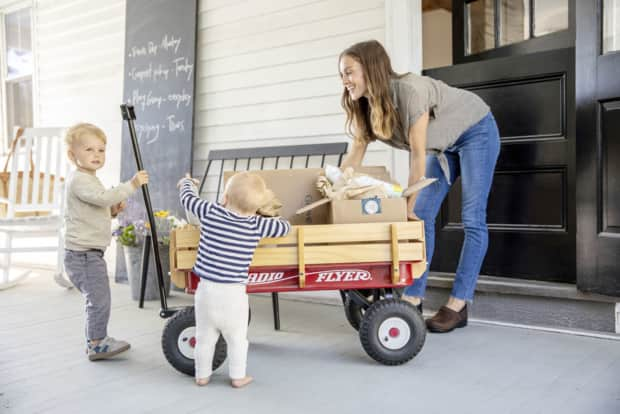
Last Updated: April 26, 2022
Recycling makes us all feel virtuous and holy, but you might be unknowingly poking holes in the process by "wish" recycling non-recyclable items.
We all work hard to do our part for Mother Earth by reusing, reducing, composting, upcycling, borrowing, and recycling everything we can. Don't take this too hard, but Mother Earth might be cursing you and many other of her little earthlings for recycling too much.
When things show up at the recycling facility that aren’t able to be processed, the whole load is tainted. Don't despair, a quick lesson on "wishcycling" will get you back on track to making our world a better place.
Wish recycling, or "wishcycling," or aspirational recycling describes the ironic act of putting items in your curbside recycling bin that you hope—or wish—are recyclable, and subsequently tainting a whole bunch of common recyclables unintentionally. In other words, good intentions gone awry.
When a batch of recyclable materials is contaminated, everything gets tossed in the landfill. Your good deed has been undone, not to mention the time and money that’s wasted for the recycling facilities.
And if your wishcycled item goes undetected, it can potentially jam up and damage the machines, costing the whole process thousands of dollars they don't have.
Single stream recycling is a process where all items are put into the same container, that container of mixed recyclables is thrown into one truck, and then machines identify and sort the items at the facility.
Easier home recycling means more people do it. Putting all items into the same bin and truck is cost-effective, saving cities time and money.
This method reduces the quality of the items recovered, making our recycling systems less effective. It also leads to more broken glass and general contamination.
Not having to think about sorting our items tends to encourage us to toss everything in the bin without thinking about it, causing an increase in harmful wishcycling.
Dual stream recycling is a process where items are sorted at home into two categories — paper/cardboard and plastic/glass/metal — before they’re picked up by the trucks and taken to the recycling facility.
Dual stream leads to less contamination, better quality recycled products, and acceptance of a wider variety of papers and plastics at the recovery facility. Better quality and quantity of products also means cities can sell recycled products to companies at higher prices.
Dual stream collection costs more for cities. Consumers sort their recycling into two bins, so the trucks have to pick up twice as many bins. The presorted materials then have to be kept separated during transport, requiring sophisticated trucks.
After all that extra work, time, and money to sort items at home and keep them separated during pick up, transport, and processing, our accidental wishcycling whoopsies can still contaminate the items that are recyclable, ultimately sending everything to the landfill.
It's time for an intervention. The world has a plastic problem, and it's time to grow up, put our adult pants on, and get to work on behalf of the world we know and love.
Those majestic mountains. The deep, blue sea. Every gorgeous bit of the planet in between. None of them look good in plastic.
That's where Grove's Beyond Plastic mission intervenes.
Real talk: Plastic is such a big problem that recycling barely makes an impact. Our industry built this crisis, and we believe the solution is simple: Stop. Making. Plastic. Join us for #PlasticFreeJuly → https://t.co/5BmiCRivkK #LetsCancelPlastic pic.twitter.com/SZf3Epfg8d
— Grove Collaborative (@grovecollab) July 6, 2021
Bottom line: Recycling can't solve our plastic problem. Going plastic-neutral — and eventually plastic-free — is the only way forward.
No matter how hard you wish for it, some things just won't come true. Instead of wishing you could recycle these 11 items that will ruin everybody's day at the material recovery facilities, you can start making simple swaps to reusable, compostable, and plastic-free alternatives instead.
There's no shame in some takeout pizza, but the greasy pizza box should not show its face in your bin. Some cities that compost organic material may accept used pizza boxes in the compost bin instead. Learn more about how to reduce takeout plastic and waste from Grove sustainability expert Alexandra Bede.
The lids on water and soda bottles, as well as detergent and other container lids, are usually made with the typically unrecyclable plastic #5 called polypropylene.
Disposable straws and cutlery are usually made with plastic #6 (polystyrene), which is too expensive for most municipalities to recycle. It’s best to keep your own plastic-free to-go cutlery and straws on hand so you can say no thank you to the plastic. Or learn even more about the best alternatives to plastic straws here.
The wax fibers on milk and juice cartons, broth containers, wax paper for baking, and so on, will not break down properly in the paper recycling process. Some municipalities pay for the extra cost of processing these items with a wax coating, so check your local guidelines before you toss it or recycle it.
The lightweight plastic material will tangle, clog, and potentially damage the machinery at the recycling facility. Some municipalities and certain grocery stores will collect plastic bags separately to reuse or recycle, but they should not be mixed in with your regular curbside plastics. Bringing your own reusable grocery and produce bags eliminates this issue entirely. Or learn more about reusable food storage here.
Window panes, mirrors, light bulbs, and broken glass should not be put into the curbside bin because they’re hazardous to facility workers. Window panes, drinking glasses, and mirrors are treated with chemicals that change their melting point so that they can't be melted down with your recyclable glass bottles. Specialized recovery facilities may accept some of these items if you drop them off.
Paper towels and napkins are recyclable before they have been used, but after they’ve been used, the food particles and other substances on them will contaminate the process. If you or your municipality compost organic waste, you can compost your used paper towels and napkins that haven't been used on chemicals.
Shredding paper shortens and degrades the fibers, making it undesirable for recycling into anything decent. Some plastic or other material might get mixed in with the shredded paper bits and ruin an entire batch of paper recyclables.
This might seem ridiculous, but it's true! Moisture damages the paper fibers by making them too brittle to recycle. Depending on the kind of paper that’s wet, you might still be able to compost it.
Since wire hangers contain such a low percentage of metal and are perfectly shaped to wreak havoc on the machines at the facility, they shouldn't be put in your curbside bin. If you can't bear to throw them out, many clothing donation centers and dry cleaners will accept old hangers to reuse.
If you're counteracting your Starbucks on-the-go habit by fastidiously recycling each and every paper coffee cup, we have news for you: The wax coating inside the paper cup makes it a contaminate for the other recyclable paper and lowers the quality of the end product.
You can compost some paper cups, so check your city’s compost regulations, but you definitely need to go dig them out of your paper recycling bin...excuse us while we go do the same!
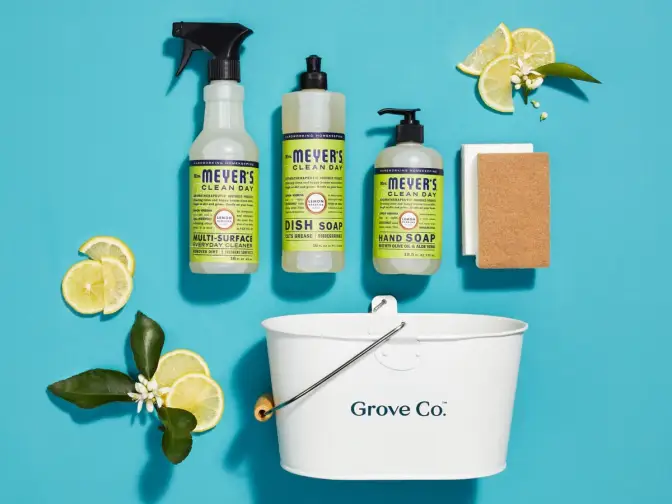
Wondering who Grove is, what types of products we offer, and how to get a free gift set when you sign up? Learn more about flexible monthly shipments, customizing your shipment, and joining millions of happy households — no monthly fees or commitments required.
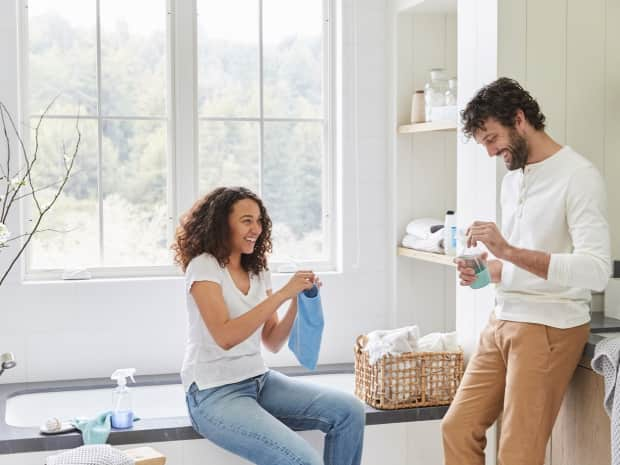
Here’s how to go plastic free if you're just getting started — and how to level up if you're ready to commit.

We've pulled the top 8 trash bags determined by Grove members.
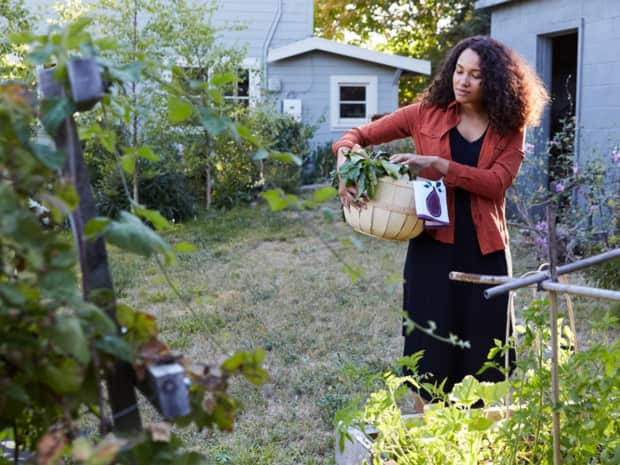
Read on to learn what the terms "biodegradable" and "compostable" actually mean.
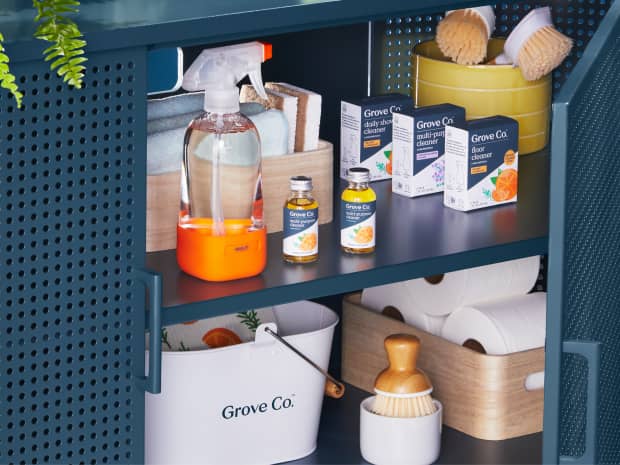
Let professional organizer, simplifier, and author Monica Leed show you how it’s done.